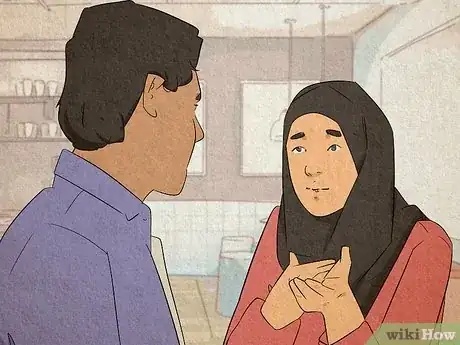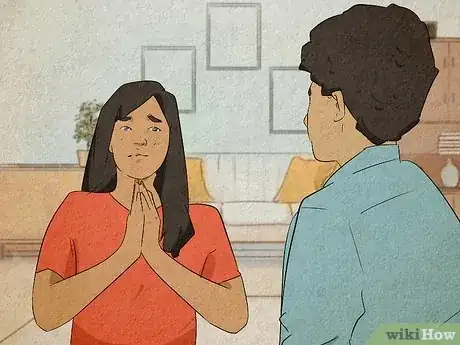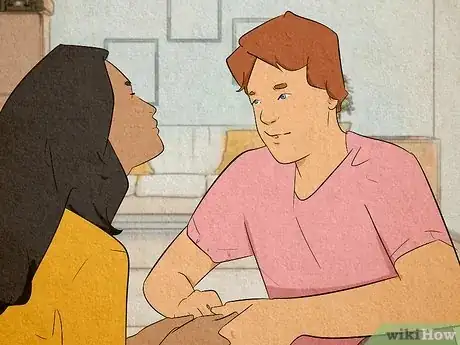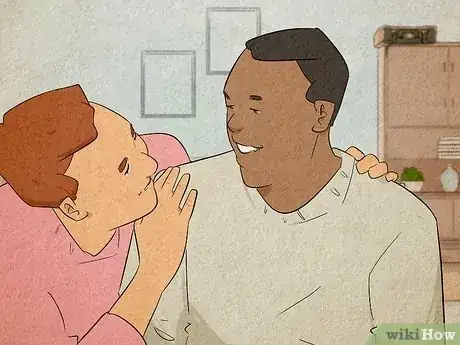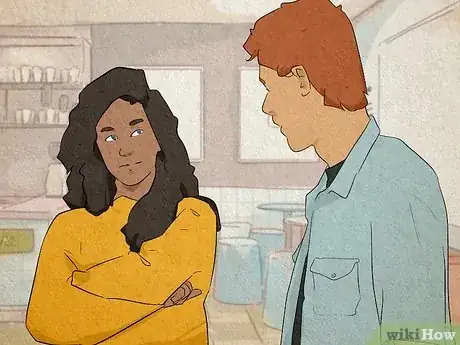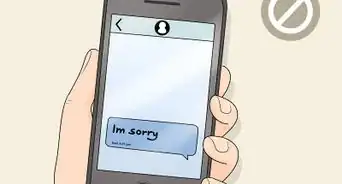This article was co-authored by William Gardner, PsyD. William Gardner, Psy.D. is a Clinical Psychologist in private practice located in San Francisco, CA’s financial district. With over 10 years of clinical experience, Dr. Gardner provides individually tailored psychotherapy for adults using cognitive behavioral techniques, to reduce symptoms and improve overall functioning. Dr. Gardner earned his PsyD from Stanford University in 2009, specializing in evidence-based practices. He then completed a post-doc fellowship at Kaiser Permanente.
There are 9 references cited in this article, which can be found at the bottom of the page.
This article has been viewed 74,748 times.
Saying you are sorry - it's something we have to do occasionally, and it's often a painful experience. Knowing how to apologize respectfully and sincerely is a beneficial skill a person can have in the professional world as well as in his or her personal life. Even so, many live their entire lives without ever truly learning how to do this. Luckily, though the process isn't always easy, it is straightforward. See Step 1 below to get started.
Steps
Community Q&A
-
QuestionHow do I apologize when the person ignores me completely?
 Community AnswerGive the person time. It's better to leave them be until they're willing to accept your apology, because if you don't it could create more problems.
Community AnswerGive the person time. It's better to leave them be until they're willing to accept your apology, because if you don't it could create more problems. -
QuestionHow do I apologize to a sibling after acting selfish?
 Community AnswerTell them you're sorry for being selfish, and that you'll do your best to be more generous and caring in the future. If they don't forgive you right away, just give them some time. Then do your best to actually refrain from being selfish. Actions speak louder than words!
Community AnswerTell them you're sorry for being selfish, and that you'll do your best to be more generous and caring in the future. If they don't forgive you right away, just give them some time. Then do your best to actually refrain from being selfish. Actions speak louder than words! -
QuestionCan I say I am sorry in a note?
 Community AnswerThe best way is to apologize in person. Saying you're sorry in a note can come across as insincere. It's awkward and uncomfortable to have to face the person, but it's one of the consequences of wronging someone else (and a good incentive not to do so in the future).
Community AnswerThe best way is to apologize in person. Saying you're sorry in a note can come across as insincere. It's awkward and uncomfortable to have to face the person, but it's one of the consequences of wronging someone else (and a good incentive not to do so in the future).
Warnings
- If you come too early to apologize, they might still be very angry at you.⧼thumbs_response⧽
- Do not beg the person for forgiveness; you will look desperate. This will also make them angry and mistrustful of you and may lead them to avoid you. Apologizing is about showing respect and patience.⧼thumbs_response⧽
References
- ↑ William Gardner, PsyD. Clinical Psychologist. Expert Interview. 25 July 2019.
- ↑ https://greatergood.berkeley.edu/article/item/the_three_parts_of_an_effective_apology
- ↑ William Gardner, PsyD. Clinical Psychologist. Expert Interview. 25 July 2019.
- ↑ https://au.reachout.com/articles/how-to-say-sorry-and-mean-it
- ↑ https://psychcentral.com/blog/how-to-make-an-adept-sincere-apology/
- ↑ William Gardner, PsyD. Clinical Psychologist. Expert Interview. 25 July 2019.
- ↑ https://www.psychologytoday.com/us/blog/valley-girl-brain/201709/7-ways-truly-say-youre-sorry
- ↑ https://www.psychologytoday.com/us/blog/understand-other-people/202112/the-simple-gifts-thank-you-and-i-m-sorry
- ↑ https://www.psychologytoday.com/us/blog/insight-is-2020/202101/how-repair-relationship-6-solutions-change
